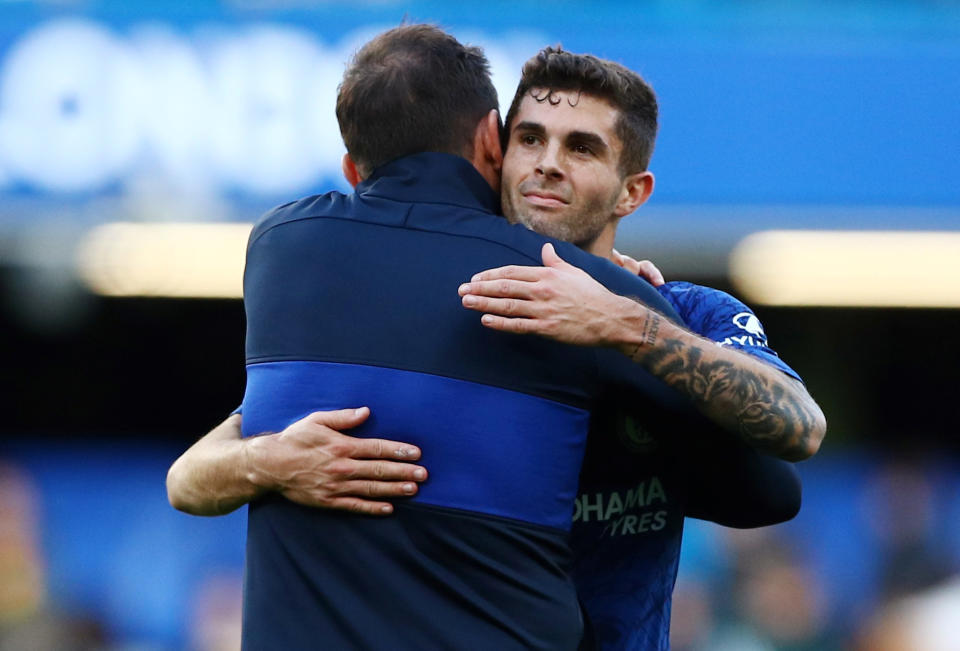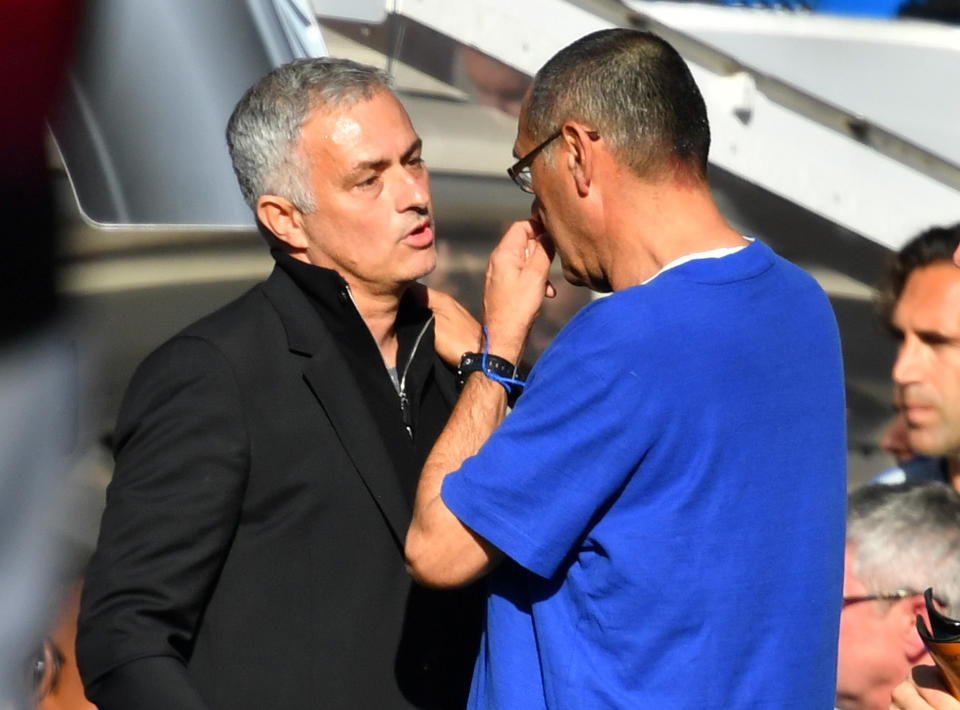Admit it: Chelsea is likable now
There are many reasons for Premier League clubs to be hated. Geographical rivalries, past controversial flashpoints, or simply being frustratingly good are all valid reasons for scorn in the world of soccer fandom.
But if one Premier League team had to be identified as the biggest magnet for fan hatred, it would be Chelsea.
In 2018, this theory of loathing was backed up by a survey that found the Blues to be the Premier League’s most-hated side. Apparently, 67.8% of those polled found the southwest London outfit to be their most reviled rival.
To be fair, Chelsea have added plenty of fuel to the fire. When they were taken over by Russian Oligarch Roman Abramovich in 2003, they represented the first of a batch of nouveaux riches teams who bought instant success. Their subsequent titles were purchased by petrodollars of dubious ethical origin, rather than being earned through the traditional manner. (Which is to be part of a cabal of big wealthy clubs with “heritage.” Upsetting the establishment is frowned upon, you see.)

Chelsea’s reputation was not helped by the unfettered arrogance of two-time manager Jose Mourinho. His put-downs were unprecedented, his press conferences were biting, and the manner in which he effectively relieved a female physio staff of her duties was completely unedifying. In many ways, The Special One is Chelseas’s perceived “lack of class” personified.
On the field, players such as Ashley Cole and Diego Costa have played the role of pantomime villain. And while “Captain, Leader, Legend” John Terry may have led the charge in some important battles, his alleged use of racist language, liberal approach to dalliances with his teammate’s romantic partners and repeated socially unacceptable behavior have tarnished the club. Neutral fans can only wonder how a man who has been caught several times parking in disabled parking spaces deserves such reverence from the fanbase.
And speaking of the fanbase, they have done little to endear themselves to the general soccer community. Whether it is racist train attacks in Paris, or a history of hooliganism that extends long before the Premier League era, Blues supporters are not renowned for endearing behavior.
There remains plenty of ill feeling towards Chelsea Football Club. But if the 2018 survey that branded them the most hated Premier League club was conducted today, the results may be different.
Whisper it quietly: Chelsea, whether by design or circumstance, have become quite likable.
[ Follow Yahoo Soccer on Twitter and Facebook ]
In theory, The Blues were set up for failure in the 2019-20 season. They sold Eden Hazard — their best player, who has undoubtedly been the difference-maker in recent seasons — and were unable to bring in any reinforcements due to their transfer ban. With expectations lowered, the club eschewed their policy of bringing in a proven continental manager for a former player, Frank Lampard, whose coaching experience extended to a single season of Championship soccer.
When they lost their season opener by a 4-0 scoreline at Old Trafford, the writing was on the wall: This would be a rebuilding season. The fans who had enjoyed 16 trophies in the previous 16 seasons would have to grin and bear it.
Twelve games into the season, however, an entirely different narrative has unfolded.
For starters, Lampard is putting smiles on faces with Chelsea’s style of play. While Maurizio Sarri’s style was methodical and ponderous, Lampard is directing his charges to move the ball into the final third with pace and precision. As a result, they are scoring plenty of goals — at least two in each of their last five outings.
Granted, their defensive play leaves a lot to be desired (only five teams outside the relegation zone have conceded more), but this swashbuckling approach only adds to the excitement. And, in turn, their likability for the neutral.
It turns out that aiming to score more than your rival is a more entertaining philosophy than parking the bus. Who knew?

Last season under Sarri was ostensibly successful; Chelsea finished third, reached the League Cup final and won the Europa League. But Sarri’s methods were divisive and fans are now heaping praise on Lampard, if only for his sheer contrast to his predecessor. If the Blues win nothing this season, fans will still be far happier than they were in 2018-19.
Lampard is personally earning plenty of goodwill for several reasons. He is affable in press conferences, his record as a player is well-respected, and his man management skills are demonstrably excellent. If the $25K fines for being late for training are anything to go by, the 41-year-old is certainly running a tight ship to great effect.
Most importantly, Lampard is vastly overachieving with the resources at hand. The transfer ban has forced the coach to promote from the youth system; a concept virtually unheard by Mourinho and some of the Blues’ other recent managers.
As a result, players like Mason Mount and Fikayo Tomori — who earned Lampard’s trust at Derby — are being given an opportunity on the biggest stage. They are joined by the highly talented Tammy Abraham, Callum Hudson-Odoi and Reece James. The latter is an atypical fullback who earned his stripes on his Premier League debut last weekend by keeping Wilfried Zaha under wraps. When Ruben Loftus-Cheek returns from injury, he will also likely join a core of young first-team players who are all eligible to play for England.
The Premier League is often accused of stifling young English talent, so this approach is highly welcome by national team fans. The transfer ban may have been foisted upon the Blues, but it is very clearly a blessing in disguise, for the club and the English game in general.
This has also completely transformed the perception of Chelsea’s academy. What was previously a cynical business that hoarded dozens of players for profit is now a legitimate path to the first team.
And it is not just the promotion of young English academy talent that is reflecting well on the club. New signing Christian Pulisic, whose deal was agreed before the transfer embargo, was disconcertingly underused in the opening weeks of the season. But Lampard’s plan to introduce him gradually now looks like a stroke of genius. The United States winger has five goals in his last five appearances. He looks supremely confident running at defenders and is clearly fitting in well with a team whose average age was 24 years and 88 days in its last outing.
“I think this is the most likeable Chelsea we've seen in Roman Abramovich's time,” said former Manchester United star Gary Neville back in September, presumably through gritted teeth. “They've been a difficult club to like because of what they've done and the fact the players always seemed a bit nasty.”
If Chelsea were a fantasy film character, they would be Snape or Loki. In this chapter, they have atoned for their villainous past by showing the kind of virtue we never thought they were capable of.
Whether they maintain this likable status as their story arc continues remains to be seen.
More from Yahoo Sports:

 Yahoo Finance
Yahoo Finance 
